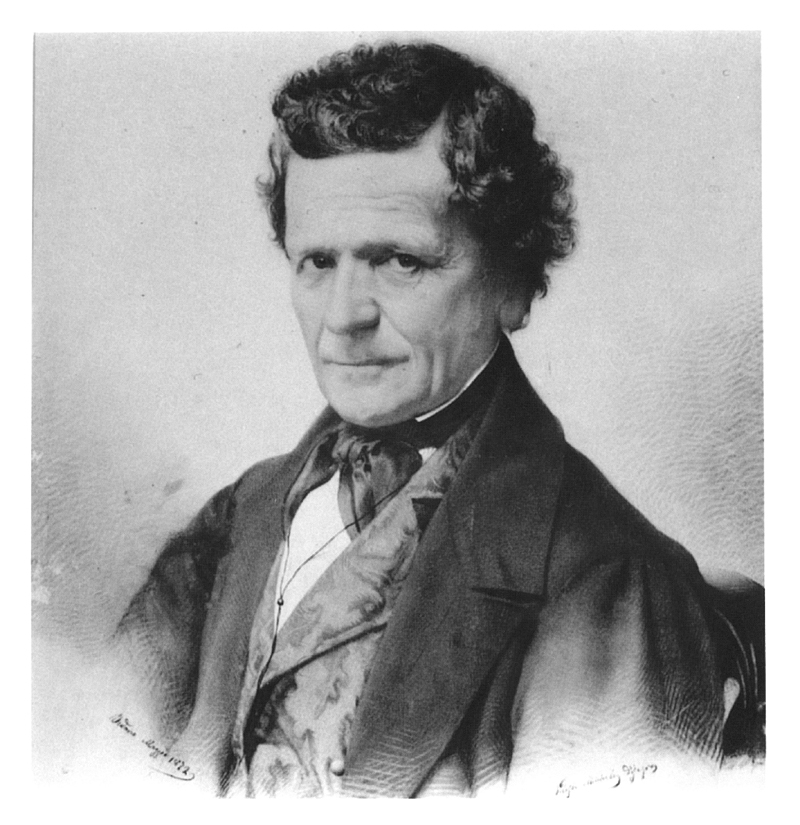|
Swiss Labour Force Survey
The Swiss Labour Force Survey (SLFS) - conducted by the Federal Statistical Office in cooperation with an external service provider - is a household survey that has been conducted since 1991. The main goal is to survey the employment structure and employment behaviour of the permanent resident population. Because of the strict application of international definitions in the SLFS, Swiss data can be compared with those of other OECD countries and the countries of the European Union. Since 2010, the SLFS has been conducted on a quarterly basis. The interviews from the third and fourth quarters of 2009 serve as a transition from the old to the new (continuous) SLFS. Legal basis Ordinance on the Conduct of Statistical Surveys by the Confederation of 30 June 1993, SR 431.012.1 Type of survey The SLFS is a sample survey. The survey is carried out as a telephone household survey among a sample of approximately 105,000 people (until 2001: approx. 16,000; from 2002 to 2009: approx. 35,0 ... [...More Info...] [...Related Items...] OR: [Wikipedia] [Google] [Baidu] |
Federal Statistical Office (Switzerland)
The Federal Statistical Office (FSO) is a Federal agency of the Swiss Confederation. It is the statistics office of Switzerland, situated in Neuchâtel and attached to the Federal Department of Home Affairs. The Federal Statistical Office is the national service provider and competence centre for statistical observations in areas of national, social, economic and environmental importance. The FSO is the main producer of statistics in the country and runs the Swiss Statistics data pool. It provides information on all subject areas covered by official statistics. The office is closely linked to the national statistics scene as well as to partners in the worlds of science, business and politics. It works closely with Eurostat, the Statistics Office of the European Union, in order to provide information that is also comparable at an international level. The key principles upheld by the office throughout its statistical activities are data protection, scientific reliability, i ... [...More Info...] [...Related Items...] OR: [Wikipedia] [Google] [Baidu] |
OECD
The Organisation for Economic Co-operation and Development (OECD; french: Organisation de coopération et de développement économiques, ''OCDE'') is an intergovernmental organisation with 38 member countries, founded in 1961 to stimulate economic progress and world trade. It is a forum whose member countries describe themselves as committed to democracy and the market economy, providing a platform to compare policy experiences, seek answers to common problems, identify good practices, and coordinate domestic and international policies of its members. The majority of OECD members are high-income economies with a very high Human Development Index (HDI), and are regarded as developed countries. Their collective population is 1.38 billion. , the OECD member countries collectively comprised 62.2% of global nominal GDP (US$49.6 trillion) and 42.8% of global GDP ( Int$54.2 trillion) at purchasing power parity. The OECD is an official United Nations observer. In April 1948, ... [...More Info...] [...Related Items...] OR: [Wikipedia] [Google] [Baidu] |
European Union
The European Union (EU) is a supranational political and economic union of member states that are located primarily in Europe. The union has a total area of and an estimated total population of about 447million. The EU has often been described as a '' sui generis'' political entity (without precedent or comparison) combining the characteristics of both a federation and a confederation. Containing 5.8per cent of the world population in 2020, the EU generated a nominal gross domestic product (GDP) of around trillion in 2021, constituting approximately 18per cent of global nominal GDP. Additionally, all EU states but Bulgaria have a very high Human Development Index according to the United Nations Development Programme. Its cornerstone, the Customs Union, paved the way to establishing an internal single market based on standardised legal framework and legislation that applies in all member states in those matters, and only those matters, where the states have agreed to act ... [...More Info...] [...Related Items...] OR: [Wikipedia] [Google] [Baidu] |
Act Of Parliament
Acts of Parliament, sometimes referred to as primary legislation, are texts of law passed by the Legislature, legislative body of a jurisdiction (often a parliament or council). In most countries with a parliamentary system of government, acts of parliament begin as a Bill (law), bill, which the legislature votes on. Depending on the structure of government, this text may then be subject to assent or approval from the Executive (government), executive branch. Bills A draft act of parliament is known as a Bill (proposed law), bill. In other words, a bill is a proposed law that needs to be discussed in the parliament before it can become a law. In territories with a Westminster system, most bills that have any possibility of becoming law are introduced into parliament by the government. This will usually happen following the publication of a "white paper", setting out the issues and the way in which the proposed new law is intended to deal with them. A bill may also be introduced in ... [...More Info...] [...Related Items...] OR: [Wikipedia] [Google] [Baidu] |
Statistical Survey
Survey methodology is "the study of survey methods". As a field of applied statistics concentrating on human-research surveys, survey methodology studies the sampling of individual units from a population and associated techniques of survey data collection, such as questionnaire construction and methods for improving the number and accuracy of responses to surveys. Survey methodology targets instruments or procedures that ask one or more questions that may or may not be answered. Researchers carry out statistical surveys with a view towards making statistical inferences about the population being studied; such inferences depend strongly on the survey questions used. Polls about public opinion, public-health surveys, market-research surveys, government surveys and censuses all exemplify quantitative research that uses survey methodology to answer questions about a population. Although censuses do not include a "sample", they do include other aspects of survey methodology, li ... [...More Info...] [...Related Items...] OR: [Wikipedia] [Google] [Baidu] |
Sample Survey
In statistics, quality assurance, and survey methodology, sampling is the selection of a subset (a statistical sample) of individuals from within a statistical population to estimate characteristics of the whole population. Statisticians attempt to collect samples that are representative of the population in question. Sampling has lower costs and faster data collection than measuring the entire population and can provide insights in cases where it is infeasible to measure an entire population. Each observation measures one or more properties (such as weight, location, colour or mass) of independent objects or individuals. In survey sampling, weights can be applied to the data to adjust for the sample design, particularly in stratified sampling. Results from probability theory and statistical theory are employed to guide the practice. In business and medical research, sampling is widely used for gathering information about a population. Acceptance sampling is used to determi ... [...More Info...] [...Related Items...] OR: [Wikipedia] [Google] [Baidu] |
Labour Force Survey
Labour Force Surveys are statistical surveys conducted in a number of countries designed to capture data about the labour market. All European Union member states are required to conduct a Labour Force Survey annually. Labour Force Surveys are also carried out in some non-EU countries. They are used to calculate the International Labour Organization (ILO)-defined unemployment rate. The ILO agrees the definitions and concepts employed in Labour Force Surveys. History European Union Prior to 1998, EU member states were required to conduct an LFS in one quarter per year, but as a result of Council Regulation (EEC) No. 577/98 of 9 March 1998 they are now expected to submit LFS results for every quarter to Eurostat. Most, though not all, participating countries changed their LFSs to continuous surveys in the period 1998 to 2004. Responsibility for Sample (statistics), sample selection, questionnaire design and fieldwork lies with member states' national statistical offices, who then fo ... [...More Info...] [...Related Items...] OR: [Wikipedia] [Google] [Baidu] |
Economy Of Switzerland
The economy of Switzerland is one of the world's most advanced and highly-developed free-market economies. The service sector has come to play a significant economic role, particularly the Swiss banking industry and tourism. The economy of Switzerland ranked first in the world since 2015 Global Innovation Index and third in the 2020 Global Competitiveness Report. According to United Nations data for 2016, Switzerland is the third richest landlocked country in the world after Liechtenstein and Luxembourg. Together with the latter and Norway, they are the only three countries in the world with a GDP per capita (nominal) above US$70,000 that are neither island nations nor ministates. History 19th century Switzerland as a federal state was established in 1848. Before that time, the city-cantons of Zurich, Geneva, and Basel in particular began to develop economically based on industry and trade, while the rural regions of Switzerland remained poor and underdeveloped. While ... [...More Info...] [...Related Items...] OR: [Wikipedia] [Google] [Baidu] |
Quantitative Research
Quantitative research is a research strategy that focuses on quantifying the collection and analysis of data. It is formed from a deductive approach where emphasis is placed on the testing of theory, shaped by empiricist and positivist philosophies. Associated with the natural, applied, formal, and social sciences this research strategy promotes the objective empirical investigation of observable phenomena to test and understand relationships. This is done through a range of quantifying methods and techniques, reflecting on its broad utilization as a research strategy across differing academic disciplines. The objective of quantitative research is to develop and employ mathematical models, theories, and hypotheses pertaining to phenomena. The process of measurement is central to quantitative research because it provides the fundamental connection between empirical observation and mathematical expression of quantitative relationships. Quantitative data is any data that ... [...More Info...] [...Related Items...] OR: [Wikipedia] [Google] [Baidu] |
Unemployment In Switzerland
Unemployment, according to the OECD (Organisation for Economic Co-operation and Development), is people above a specified age (usually 15) not being in paid employment or self-employment but currently available for Work (human activity), work during the reference period. Unemployment is measured by the unemployment rate, which is the number of people who are unemployed as a percentage of the labour force (the total number of people employed added to those unemployed). Unemployment can have many sources, such as the following: * new technology, technologies and inventions * the status of the economy, which can be influenced by a recession * competition caused by globalization and international trade * Policy, policies of the government * regulation and market (economics), market Unemployment and the status of the economy can be influenced by a country through, for example, fiscal policy. Furthermore, the monetary authority of a country, such as the central bank, can influ ... [...More Info...] [...Related Items...] OR: [Wikipedia] [Google] [Baidu] |
Social Statistics Data
Social organisms, including human(s), live collectively in interacting populations. This interaction is considered social whether they are aware of it or not, and whether the exchange is voluntary or not. Etymology The word "social" derives from the Latin word ''socii'' ("allies"). It is particularly derived from the Italian ''Socii'' states, historical allies of the Roman Republic (although they rebelled against Rome in the Social War of 91–87 BC). Social theorists In the view of Karl MarxMorrison, Ken. ''Marx, Durkheim, Weber. Formations of modern social thought'', human beings are intrinsically, necessarily and by definition social beings who, beyond being "gregarious creatures", cannot survive and meet their needs other than through social co-operation and association. Their social characteristics are therefore to a large extent an objectively given fact, stamped on them from birth and affirmed by socialization processes; and, according to Marx, in producing and reproducin ... [...More Info...] [...Related Items...] OR: [Wikipedia] [Google] [Baidu] |


